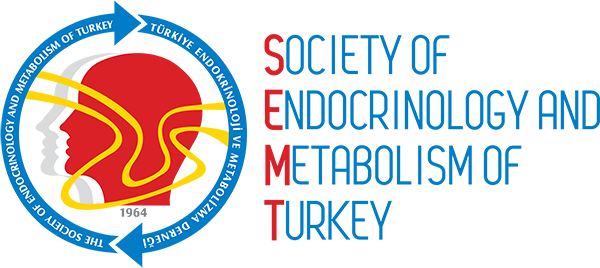ABSTRACT
Objective: The current understanding regarding the clinical significance of TSH receptor antibodies in chronic autoimmune thyroiditis is controversial. The aim of this study was to examine the frequency of elevated TSH receptor antibodies in euthyroid and hypothyroid autoimmune thyroiditis. Furthermore, their associations with the levels of thyroid hormones and autoantibodies (thyroid peroxidase and thyroglobulin antibodies [TgAb]), and the thyroid volume were also investigated.
Material and Methods: This cross-sectional study included recently diagnosed euthyroid (N=86) and hypothyroid (N=54) autoimmune thyroiditis patients along with the patients who were on levothyroxine replacement (N=66). The levels of TSH, free T4, free T3, TSH receptor antibodies, thyroid peroxidase, and thyroglobulin antibodies were measured using ECLIA (Roche Diagnostics, Switzerland). A 9 MHz transducer (Fukuda Corp., Japan) for thyroid ultrasound and a 14 MHz transducer (Ultrasonix Medical Corp., Canada) for Doppler ultrasound were employed. Statistical analyses were done with the help of IBM SPSS 19.0 software.
Results: The elevated levels of TSH receptor antibodies were observed in 6.3% of the participants (12 females and 1 male) and exclusively in hypothyroid subjects, who were either untreated (7.4%) or on levothyroxine treatment (7.6%). The highest and the lowest prevalence of positive TSH receptor antibodies were seen in patients with positive thyroglobulin antibodies & negative thyroid peroxidase (17.6%) and positive thyroid peroxidase & negative thyroglobulin antibodies (3.3%), respectively. Higher levels of TSH receptor antibodies were associated with a shorter duration of the disease (22 vs. 36 months), lower titers of thyroglobulin antibodies (281.2 vs. 400.9 UI/L), decreased thyroid volumes (9.4 vs. 14.2 cm3) and an increased prevalence of orbitopathy (23.1 vs. 4.1%). In the whole study population, TSH receptor antibodies levels were related to fT4 (linear R2=0.271, p=0.039), titers of thyroid peroxidase (quadratic, R2=0.048, p=0.034), and thyroid volume (compound R2=0.041, p=0.011). However, in the TSH receptor antibodies positive patients, the correlation was seen only with the levels of thyroid peroxidase (compound R2=0.503, p=0.032).
Conclusion: TSH receptor antibodies positivity cannot be considered negligible in Hashimoto’s thyroiditis. The elevated levels of TSH receptor antibodies might result in a predisposition to a more unstable thyroid function, lower thyroid volumes, specific profiles of thyroid peroxidase, and thyroglobulin antibodies and a higher prevalence of thyroid-associated ophthalmopathy.



.png)
.png)